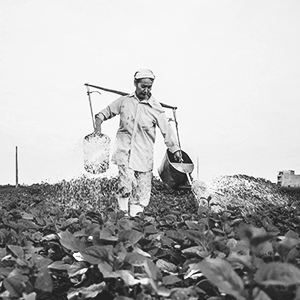Nice to meet you!
THIS IS US.
OUR EXPERIENCE IN MAJOR MATTERS
If you are interested in our previous experience, have a look at this selection of a few matters we have worked on in our roles as inhouse counsel and external litigators, respectively. They should give you a flavor of the type and the range of work for which we have particularly strong experience.

Pioneering cartel damage claims in Germany
Until the early 2000s, cartel damage claims were at best a theoretical concept in Germany. Rules on standing were missing just as much as standards of proof. Things began moving after 2001, when the Court of Justice of the European Union (CJEU) found in Courage that individual actors had to be able to claim damages for losses caused to them by anti-competitive behavior. ORWI, an insolvent printing press company and victim of the carbonless paper cartel, was such an actor. ORWI assigned its cartel damage claims to its bank, and Philipp together with his colleagues at the time represented that bank before the Higher Regional Court (OLG) in Karlsruhe. The court agreed with the bank’s arguments that ORWI had valid claims and that there was sufficient evidence of damages. On further appeal, the Federal Court of Justice (BGH) established specifically, for the first time, who can bring a claim for cartel damages and which standard of proof applies. This pioneering lawsuit laid the groundwork for cartel damage claims in Germany for years to come.

A regulatory campaign at the interface of law, science and politics
Spanning over nine years, across 28 Member States and, of course, Brussels, the EU’s revised Tobacco Products Directive (TPD2) was a major legislative initiative on public health and internal trade. Achieving some positive impact on its outcome, especially as a stakeholder often ostracized by others, required the best possible combination of science, policy, legal analysis and evidence-based political advocacy. For us, it was a journey with many twists and turns, from the Commission’s policy paper in 2007 all the way to the implementation at country level in 2016. Importantly, despite some shortcomings, the TPD2 laid the groundwork for new, better alternatives to traditional cigarettes – an area of innovation that continues to rapidly evolve in the EU and elsewhere.

Changing the investment arbitration landscape in the EU
Achmea, a foreign investor, brought claims for damages against the Slovak Republic under the bilateral investment treaty initially concluded between the Netherlands and Czechoslovakia. The Slovak Republic argued that the arbitration clause had become invalid with Slovakia’s accession to the EU. Submitting such a dispute to an arbitral tribunal would therefore go against the primacy of EU law. The arbitral tribunal, however, disagreed, and the Slovak Republic then brought an action to set aside the arbitral award. Philipp and his colleagues at the time represented the Slovak Republic in these proceedings before the Higher Regional Court (OLG) in Frankfurt am Main. Ultimately, the Court of Justice of the European Union had the final word on this case. The CJEU found in favor of the Slovak Republic – a landmark decision for EU law because it effectively rendered all intra-EU bilateral investment treaties obsolete.

Bringing down an international criminal network
Mr. X led a double life. Seemingly a pillar of his local community in Germany, he acted as the criminal mastermind behind a sophisticated international cigarette counterfeiting operation, with factories in Dubai and North Korea and distribution in Europe, the U.S., and Africa. It took Till and his colleagues several years of doggedly collecting the facts and building the case to finally bring down the criminal network. The case required close cooperation with authorities literally across continents, including customs investigators, public prosecutors and police, while protecting the company’s employees against potential retribution. The effort ultimately paid off: Mr. X ended up going to prison and paying substantial damages.

From crisis to best practices: labor conditions in the tobacco supply chain
In 2010, Human Rights Watch published a report about serious problems in tobacco growing in Kazakhstan, accusing Philip Morris International of not having done enough to combat child labor. The report resulted in negative headlines around the world, many questions from regulators and investors, and a congressional investigation. Cooperating constructively and transparently sharing information, the company was able to weather this major crisis. More importantly, under Till’s leadership, it completely overhauled, over several years, its approach for continuously improving labor conditions on tobacco farms worldwide. This required not just a strong internal program based on a sound legal framework, but also building strong relationships with NGOs and regulatory stakeholders. Today, PMI’s Agricultural Labor Practices (ALP) are often cited as a best practice for others.

Unmasking an alleged public health measure as illegal state aid
In 2015, an EU Member State introduced a new tax on certain consumer goods, labeled as “health contribution”. The tax rates were steeply progressive, with very low rates for companies with a low turnover and significantly higher rates for companies with a higher turnover. Philipp developed the argumentation that this new tax constituted in fact an illegal state aid under EU law. The European Commission agreed with the argumentation, opened an in-depth investigation, and suspended the tax.

Negotiating and settling tax claims with governments
It’s a familiar pattern. A government needs money. So, they come after big companies with unexpected tax claims based on a novel interpretation of the tax code. How to resolve such conflicts, especially when a decent relationship with the authorities is important for the ongoing business? Typically, in the countries in question, the courts give a lot of deference to the government, so merely relying on sound legal arguments won’t be enough. Using probabilistic assessments and empathy (i.e., putting oneself in the shoes of the government actors) – all in addition, of course, to a precise analysis of facts and law – often made a huge difference for finding solutions that were both financially reasonable and legally and politically tenable.

Playing defense as well as offense - in litigation, arbitration and mediation
In Germany and abroad, we have participated in defending major banks and investment funds in lawsuits brought by shareholders, customers, and business partners. These cases typically came with substantial financial exposure (up to the billion-dollar range) but often also garnered media attention and required delicately engaging with stakeholders. But we can also play offense: For instance, we were involved in bringing a multimillion arbitration claim for an international oil & gas company to get a price adjustment under long-term gas delivery contracts. And we have also litigated on behalf of a major corporation against its former CEO and his D&O insurer.